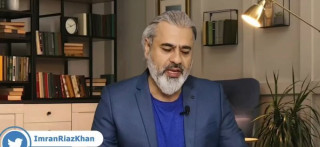Bilal_Mushi
Minister (2k+ posts)
Washington (CNN) -- From the Statue of Liberty to Hawaii's volcanoes, America's national parks and their stewards kept a vigil late Friday, waiting to see if politicians would be able to prevent a government shutdown that would furlough park rangers and hundreds of thousands of other federal employees.
The National Park Service is just one of many government agencies that would in effect be shuttered if a budget agreement was not reached by midnight Friday.
Without the agreement, the government's massive gears will begin grinding to a halt early Saturday, limiting federal services and payrolls.
In Washington, hope was kindled for some kind of compromise -- or at least a funding extension of up to a week while Democratic and Republican leaders try to hammer out a broader plan, according to Democratic and Republican sources.
A senior Republican close to the talks told CNN Friday night that disputes over controversial topics like abortion -- an apparent sticking point -- have been "essentially resolved." But negotiators also must agree on final spending numbers.
Operations from national parks to the White House visitor center would close without an agreement. Even some government websites would blink out, replaced by virtual closed signs. Americans seeking new passports would have to wait.
And the military would not be able to pay death gratuities to the families of those who die on active duty, although they would eventually receive them, a senior defense official said.
But not everything would close shop.
Essential services such as defense, air traffic control and law enforcement would continue largely unabated, as would Social Security enrollments and payments. The Social Security Administration said a backlog of applications would be crippling.
Veterans Administration hospitals and clinics, already funded through the end of the year, would also remain open.
Medicare payments would continue, as would health benefits for government employees. Electronically filed tax returns would be processed. And although paper returns wouldn't be reviewed, a shutdown wouldn't equal a tax holiday -- returns would still be due April 18.
The government estimates that 800,000 federal government employees would be sent home to anxiously await an agreement in what could become a lengthy, and unpaid, vacation. Even those who are asked to work wouldn't get paid until after the shutdown ends, and that could include U.S. troops fighting overseas.
The president and members of Congress will continue to get paid, although Republican House Speaker John Boehner, Democratic Sen. Joe Manchin of West Virginia and some others have said lawmakers should return their salaries should it come to that.
If Congress and the White House can reach a budget agreement as late as Tuesday, the Pentagon could possibly cut troops a full paycheck for April 15, their next pay date, a senior Defense Department official said. Organizations that provide emergency assistance to military personnel are preparing for a possible surge in requests if the government shuts down or reduces paychecks.
Military personnel should not "serve on an IOU," said Babette Maxwell, co-founder of Military Spouse magazine. "We have mortgages and bills to pay."
In the short term, a shutdown -- the first since 1996 -- would frustrate anyone who wants to go camping in a national park, get a passport to leave the country or receive a visa to come in.
It would probably also cost the government millions of dollars to wind up work, secure work sites and pay possible overtime to recover from the work that would pile up during a shutdown.
In the long term, a shutdown could, President Barack Obama warned, plunge the country's fragile economy back into recession.
If there is a shutdown, Fort Sumter Tours partner Rick Mosteller said his staff will still ferry visitors -- at a $2 discount --to within a few feet of the dock at Fort Sumter in the harbor of Charleston, South Carolina. Licensed guides on board will provide a history, he said.
"We'll get up close and personal, but can't touch it," because there would be no National Park Service rangers staffing the Civil War site, Mosteller told CNN. The fort is the focal point of the commemoration of the 150th anniversary of the American Civil War's start.
The current budget debate presages likely battles over raising the limit on how much money the federal government can borrow and the 2012 budget, said Norm Ornstein, a resident scholar at the conservative American Enterprise Institute.
Millions of Americans have something at stake.
"I live in one room to save heat, buy limited groceries and struggle to make ends meet," said Chris Cronkite of Bakersfield, California, who said her military contractor husband probably would be furloughed.
"There is a good chance I will be walking out of here with nothing if the money stops flowing," she said. "Basically, loading up the truck with the family photos and going camping."
It's not something Americans appear pleased to see happen. A majority of Americans -- 58% -- want congressional lawmakers to seek compromise to avoid a government shutdown, according to a Gallup poll released Wednesday.
So how did it come to this?
When voters gave control of the House to Republicans -- including many backed by the fiscally conservative Tea Party -- in November, the GOP vowed that pushing spending cuts would be a major part of its agenda. With Democrats in charge of the Senate and the White House, the threat of a shutdown has loomed ever since.
Unable to reach a long-term agreement, Congress has since funded the government with a series of temporary spending measures called continuing resolutions. Congress approved the last one on March 17.
It is that measure that expires at midnight, leaving federal agencies with no money to continue operating.
This week, the House passed a bill to continue government operations for a week, cut $12 billion from the budget and fund military operations through the end of the year. Obama said he would veto the bill because of the programs whose funding would be cut, even if the Democratic-controlled Senate passed it.
Congressional Republicans, who want to cut $61 billion, say getting spending under control is critical for the economy's long-term health.
"When we say we're serious about cutting spending, we're damn serious about it," Boehner said Friday.
Democrats say negotiators have already agreed on a $38 billion cut from current spending levels for the rest of the fiscal year, which ends on September 30.
Senate Majority Leader Harry Reid, D-Nevada, said the impasse is about an "extreme agenda" to strip funding from Planned Parenthood and other organizations linked to abortion.
He later said Republicans could either agree to a deal that cuts spending or "shut down the government over women's access to heath care. If that sounds ridiculous, it's because it is ridiculous."
But some Americans painted the threat of a shutdown in less ideological terms.
Scott Maxwell was chaperoning an eighth-grade class from Mission Viejo Christian School in California on a Friday visit to Statue of Liberty in New York.
If the government shuts down, his could be one of the last groups to visit the American icon for who knows how long.
"I'm glad we're here today," he said.
Obama, it turns out, won't be making a planned weekend trip to another American landmark.
He will remain in Washington this weekend to deal with the budget crisis, according to the White House. He had been scheduled to spend the weekend with his family in Colonial Williamsburg, Virginia
http://www.cnn.com/2011/POLITICS/04/08/government.shutdown/index.html?hpt=C1
The National Park Service is just one of many government agencies that would in effect be shuttered if a budget agreement was not reached by midnight Friday.
Without the agreement, the government's massive gears will begin grinding to a halt early Saturday, limiting federal services and payrolls.
In Washington, hope was kindled for some kind of compromise -- or at least a funding extension of up to a week while Democratic and Republican leaders try to hammer out a broader plan, according to Democratic and Republican sources.
A senior Republican close to the talks told CNN Friday night that disputes over controversial topics like abortion -- an apparent sticking point -- have been "essentially resolved." But negotiators also must agree on final spending numbers.
Operations from national parks to the White House visitor center would close without an agreement. Even some government websites would blink out, replaced by virtual closed signs. Americans seeking new passports would have to wait.
And the military would not be able to pay death gratuities to the families of those who die on active duty, although they would eventually receive them, a senior defense official said.
But not everything would close shop.
Essential services such as defense, air traffic control and law enforcement would continue largely unabated, as would Social Security enrollments and payments. The Social Security Administration said a backlog of applications would be crippling.
Veterans Administration hospitals and clinics, already funded through the end of the year, would also remain open.
Medicare payments would continue, as would health benefits for government employees. Electronically filed tax returns would be processed. And although paper returns wouldn't be reviewed, a shutdown wouldn't equal a tax holiday -- returns would still be due April 18.
The government estimates that 800,000 federal government employees would be sent home to anxiously await an agreement in what could become a lengthy, and unpaid, vacation. Even those who are asked to work wouldn't get paid until after the shutdown ends, and that could include U.S. troops fighting overseas.
The president and members of Congress will continue to get paid, although Republican House Speaker John Boehner, Democratic Sen. Joe Manchin of West Virginia and some others have said lawmakers should return their salaries should it come to that.
If Congress and the White House can reach a budget agreement as late as Tuesday, the Pentagon could possibly cut troops a full paycheck for April 15, their next pay date, a senior Defense Department official said. Organizations that provide emergency assistance to military personnel are preparing for a possible surge in requests if the government shuts down or reduces paychecks.
Military personnel should not "serve on an IOU," said Babette Maxwell, co-founder of Military Spouse magazine. "We have mortgages and bills to pay."
In the short term, a shutdown -- the first since 1996 -- would frustrate anyone who wants to go camping in a national park, get a passport to leave the country or receive a visa to come in.
It would probably also cost the government millions of dollars to wind up work, secure work sites and pay possible overtime to recover from the work that would pile up during a shutdown.
In the long term, a shutdown could, President Barack Obama warned, plunge the country's fragile economy back into recession.
If there is a shutdown, Fort Sumter Tours partner Rick Mosteller said his staff will still ferry visitors -- at a $2 discount --to within a few feet of the dock at Fort Sumter in the harbor of Charleston, South Carolina. Licensed guides on board will provide a history, he said.
"We'll get up close and personal, but can't touch it," because there would be no National Park Service rangers staffing the Civil War site, Mosteller told CNN. The fort is the focal point of the commemoration of the 150th anniversary of the American Civil War's start.
The current budget debate presages likely battles over raising the limit on how much money the federal government can borrow and the 2012 budget, said Norm Ornstein, a resident scholar at the conservative American Enterprise Institute.
Millions of Americans have something at stake.
"I live in one room to save heat, buy limited groceries and struggle to make ends meet," said Chris Cronkite of Bakersfield, California, who said her military contractor husband probably would be furloughed.
"There is a good chance I will be walking out of here with nothing if the money stops flowing," she said. "Basically, loading up the truck with the family photos and going camping."
It's not something Americans appear pleased to see happen. A majority of Americans -- 58% -- want congressional lawmakers to seek compromise to avoid a government shutdown, according to a Gallup poll released Wednesday.
So how did it come to this?
When voters gave control of the House to Republicans -- including many backed by the fiscally conservative Tea Party -- in November, the GOP vowed that pushing spending cuts would be a major part of its agenda. With Democrats in charge of the Senate and the White House, the threat of a shutdown has loomed ever since.
Unable to reach a long-term agreement, Congress has since funded the government with a series of temporary spending measures called continuing resolutions. Congress approved the last one on March 17.
It is that measure that expires at midnight, leaving federal agencies with no money to continue operating.
This week, the House passed a bill to continue government operations for a week, cut $12 billion from the budget and fund military operations through the end of the year. Obama said he would veto the bill because of the programs whose funding would be cut, even if the Democratic-controlled Senate passed it.
Congressional Republicans, who want to cut $61 billion, say getting spending under control is critical for the economy's long-term health.
"When we say we're serious about cutting spending, we're damn serious about it," Boehner said Friday.
Democrats say negotiators have already agreed on a $38 billion cut from current spending levels for the rest of the fiscal year, which ends on September 30.
Senate Majority Leader Harry Reid, D-Nevada, said the impasse is about an "extreme agenda" to strip funding from Planned Parenthood and other organizations linked to abortion.
He later said Republicans could either agree to a deal that cuts spending or "shut down the government over women's access to heath care. If that sounds ridiculous, it's because it is ridiculous."
But some Americans painted the threat of a shutdown in less ideological terms.
Scott Maxwell was chaperoning an eighth-grade class from Mission Viejo Christian School in California on a Friday visit to Statue of Liberty in New York.
If the government shuts down, his could be one of the last groups to visit the American icon for who knows how long.
"I'm glad we're here today," he said.
Obama, it turns out, won't be making a planned weekend trip to another American landmark.
He will remain in Washington this weekend to deal with the budget crisis, according to the White House. He had been scheduled to spend the weekend with his family in Colonial Williamsburg, Virginia
http://www.cnn.com/2011/POLITICS/04/08/government.shutdown/index.html?hpt=C1































